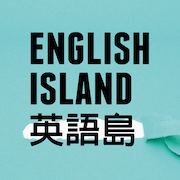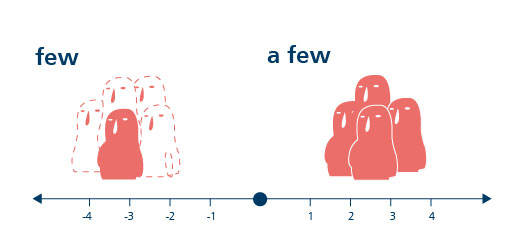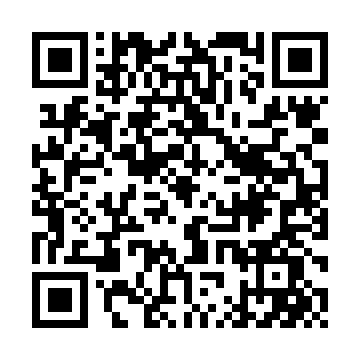「服務他人是你住地球應該付出的租金。」– 穆罕默德‧阿里 (拳擊手)
"Service to others is the rent you pay for your room here on earth." -- Muhammad Ali, Boxer

最新消息
英語島Newsletter
最容易搞混的形容詞概念,一張圖說清楚
文/英語島教學實驗室

- 形容數量的時候,只用few有負面意思,表示短缺。
Andy has few friends. Andy沒什麼朋友。 - 用a few則表示有一些,但是只能形容可數名詞。
Andy has a few friends. Andy有一些朋友。

- Little形容不可數的名詞,有負面意思。
There is little room in the car. 車裡沒什麼麼空間了。 - A little是一些,和a few相反,只能形容不可數名詞。
We have a little time. 我們有一點時間。

- Each是形容每個獨立、分開的個體。
Each child is unique. 每個孩子都是獨特的。
Please answer each question carefully. 請逐一仔細回答每個問題。 -
Every指涵蓋某個範圍內的每一個人、物。
Every team member got their quarterly bonus. 團隊的每個成員都獲得季度獎金。
I have enjoyed every minute here. 我很享受在這裡的每一分鐘。 -
Every也用來形容動作的頻率。
He exercises every morning. 他每天早上運動。 -
記得,Every和Each接的都是單數的名詞,之後的動詞也是單數。除了這樣的情況例外:
Each of the children is unique. 這句話指的是,「這群孩子」裡的「各個孩子」都是獨特的,因此用了複數名詞children。

- High形容位置高。
Look! The plane is flying at a high altitude.看!飛機飛得好高。 - Tall是形容直立的高度。
Taipei 101 is the tallest building in Taiwan. 台北101是台灣最高的建築。

- Sick和ill都可以指生病,美國人比較常用sick,英國人則常用ill。還有一些情形中,兩個字用法是不同的。
- Sick可以形容想吐。
I feel sick. 我想吐。 - Sick也用來形容對、事厭煩。
I am sick of the inefficient meetings. 我受夠沒效率的會議了。
They make me sick. 我很討厭他們。 - Ill除了指生病,也可以指有害的:
I have always known about some of the ill effects of smoking but did not know how harmful it could be. 我知道抽菸有不良影響,但我不知道傷害這麼大。 -
非常口語的用法中,ill和sick都可以用來表示太酷了,太讚了。聽到人家說 "This is ill."或"This is sick." 不要馬上以為是批評,分辨一下他們的神情語調,他的意思可能是"This is awesome."

- 較少,形容的對象是不可數的群體或總數。
In order to lose weight, you need to eat less. 為了減重,你必須吃少一點。 - 意思也是「較少」,但形容的對象必須是可數的名詞或 單一物件。
I have fewer books than he does. 我擁有的書比他少。 - Fewer 和 Less 分別為 few 和 little 的比較級,意思接近,用的時機卻不一樣,因為less 是副詞,fewer 是形容詞。

- 財務,情感,或身體上的傷害都可以用injured。
He has to stay in bed to rest his injured back. 他必須待在床上休養受傷的背。 - 通常指身體受到傷害, 尤其是撕裂傷, 用wounded。
The sergeant was seriously wounded. 那名警官傷勢嚴重。 - 身體或情感上受到的痛苦,用hurt。
The lady got hurt during the typhoon and was taken to the hospital. 那位颱風期間受傷的女士被送往醫院。
Take the hurt look off your face! 別再一副受傷了的表情!

- 指最後一個。
This is the last test you need to pass. 這是你必須通過的最後一科考試。 - 指「後者」
The latter is easier than the former. 後者比前者來得容易。 - 指最新的,the most recent。
Here is the latest news on the election. 這是最新出爐的選舉新聞。 - Latest也是late的最高級,指最遲的。
Tom is the latest guest to arrive. 湯姆是最晚到的客人。

- 只用來形容距離
The school was much farther than she thought. 那間學校比她預想的來得遠多了。 - 含有「更進一步」的意思,不一定指實際距離。
Without further conversation, they started to fight. 他們沒有繼續說話,直接打起來了。
本文收錄於英語島English Island 2015年11月號
訂閱雜誌
| 加入Line好友 |  |

 擔心生理健康,心理卻出問題?
擔心生理健康,心理卻出問題?